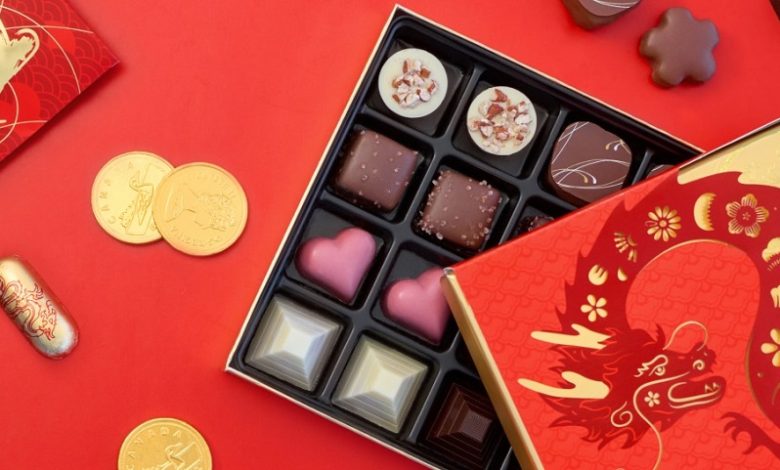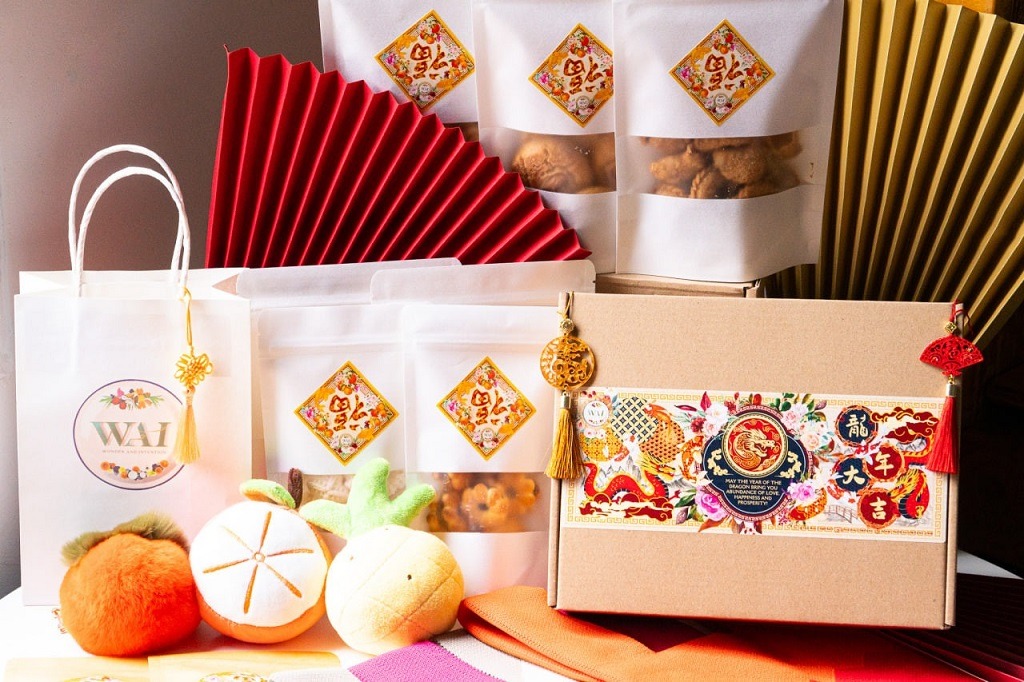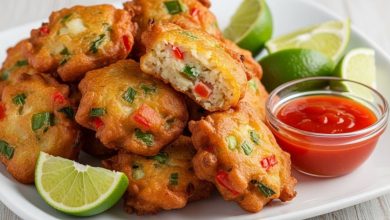What is a Typical Gift for Chinese New Year?

Chinese New Year, also known as the Spring Festival, is the most significant celebration in Chinese culture. It marks the beginning of the lunar new year and is celebrated by millions of people around the world. This festive occasion is filled with traditions, family reunions, feasts, and the exchange of gifts. Gift-giving is an important part of the celebrations, and it is a gesture of goodwill, respect, and love. But what is a typical gift for Chinese New Year? Let’s explore the popular gift choices, their meanings, and the cultural significance behind them.
The Importance of Gift-Giving During Chinese New Year

Gift-giving during Chinese New Year is more than just a customary practice; it’s a way to show appreciation, good wishes, and blessings for the year ahead. The Chinese believe that the way the new year begins can influence the entire year, so it is important to start off on a positive note, surrounded by family, friends, and meaningful exchanges.
In the Chinese tradition, certain gifts carry symbolic meanings, often associated with health, prosperity, longevity, and happiness. The act of giving a thoughtful gift is seen as a way to ensure that these qualities will be present in the recipient’s life throughout the year.
1. Red Envelopes (Hongbao)
One of the most iconic and widely recognized gifts for Chinese New Year is the red envelope, or hongbao (红包). These red packets typically contain money and are given to children, younger relatives, employees, or anyone who is unmarried. The red color symbolizes good luck, happiness, and prosperity, while the money inside represents a wish for wealth in the coming year.
The amount of money given is usually an even number, as odd numbers are associated with funerals. The number 8 is especially auspicious, as it is considered a symbol of good fortune and wealth. The practice of giving hongbao reflects the cultural value placed on generosity and the desire to share blessings with others.
2. Food and Sweets
Food plays a central role in Chinese New Year celebrations, and gifting food is a common practice. Certain foods are considered lucky because of their symbolic meanings. For instance, oranges and tangerines are often given as gifts because their names in Chinese sound similar to the word for “luck” (橙 chéng and jú for tangerine). The round shape of these fruits also symbolizes completeness and unity.
Another popular gift is the nian gao (年糕), a sticky rice cake. The word nian means “year,” and gao sounds like “tall” or “high,” symbolizing growth, progress, and the hope for a better year. Candied fruits, nuts, and other sweets are also common, as they are associated with the sweetness of life and good fortune.
3. Tea and Tea Sets
Tea is an integral part of Chinese culture, and giving a high-quality tea or an elegant tea set is a thoughtful and appreciated gift. Green tea, oolong tea, or pu-erh tea are commonly gifted, as they are believed to promote health, longevity, and balance. The act of drinking tea together is also a sign of respect and connection.
A beautifully crafted tea set can also make an excellent gift, symbolizing hospitality and the tradition of sharing tea during gatherings. Such gifts are especially suitable for elders or people with whom you share a close bond.
4. Clothing and Accessories
New clothes are often worn during Chinese New Year to mark a fresh start and to bring in good luck for the year ahead. Giving clothes, particularly items in red, is a common gift as it symbolizes prosperity, health, and protection. Red is a color deeply associated with good fortune, and it is believed to ward off evil spirits.
Clothing items like scarves, shoes, or jackets are also popular gifts, especially for close family members. For elders, gifts of clothing may symbolize care and respect, ensuring they stay warm and comfortable during the winter months.
5. Decorative Items
Decorative gifts are also commonly exchanged during the Chinese New Year festivities. Items such as lanterns, figurines, and calligraphy art are traditional gifts that convey positive energy and good wishes. For instance, Fu characters, written on red paper or decorative items, symbolize happiness and good luck.
You might also find people giving small figurines of animals from the Chinese zodiac, especially if it’s the year of that animal. For example, during the Year of the Rat, gifts featuring rats, such as small toys or statues, are given to celebrate the zodiac sign and its symbolic qualities.
Read More Also: Scarlett Johansson’s Home Life: A Peek Inside Her Private Sanctuary
6. Health and Wellness Gifts
Given that Chinese culture places a high value on health and well-being, gifts related to health are often appreciated during the New Year period. Herbal remedies, traditional medicines, or wellness products like ginseng and bird’s nest are popular. These gifts are believed to offer blessings of health, longevity, and vitality.
For example, giving a bottle of premium ginseng or lingzhi (reishi mushroom), which is renowned for its health benefits, is common. These types of gifts are usually given to elders or family members to ensure they remain in good health for the year.
7. Customized and Personalized Gifts
In recent years, personalized gifts have become increasingly popular for Chinese New Year. Customized items, such as embroidered handkerchiefs, personalized jewelry, or items with a family member’s name, are considered thoughtful and show deep care for the recipient.
These types of gifts might also include anything that reflects the recipient’s interests, hobbies, or personal style, making them more meaningful. Such personalized gifts often come with custom messages of goodwill, adding a sentimental touch to the exchange.
FAQ About Chinese New Year Gifts
Q1: Can I give money in any form for Chinese New Year?
No, money given for Chinese New Year should be placed in a red envelope. This is a traditional practice that adds meaning to the gift. Giving money directly is considered impolite and lacks the symbolic blessing associated with the red envelope.
Q2: Are there any gifts that should be avoided during Chinese New Year?
Yes, certain gifts are considered bad luck. Clocks, for example, are associated with death because the word for “clock” (钟, zhōng) sounds like the word for “end” or “funeral.” Sharp objects, like knives or scissors, are also avoided, as they symbolize cutting ties or severing relationships.
Q3: What is the significance of giving oranges during Chinese New Year?
Oranges are considered lucky because their pronunciation in Chinese resembles the word for “wealth” or “fortune.” They are also round, symbolizing completeness and unity in family.
Q4: Can I give gifts to everyone during Chinese New Year?
It is customary to give gifts to children, younger relatives, employees, and unmarried people. It’s also important to remember that gifts should be given with sincerity and respect. In some cases, giving gifts to elders or close family members can be a way to express gratitude and love.
Conclusion
Gift-giving during Chinese New Year is a beautiful expression of good wishes and blessings for the year ahead. Whether it’s the red envelopes filled with money, symbolic food, traditional tea, or meaningful decorative items, each gift carries deep significance and plays a role in strengthening relationships. The customs surrounding Chinese New Year gifts reflect the values of prosperity, happiness, and longevity, which are essential themes during this festive time.
While the specific gifts may vary depending on the region or family traditions, the spirit of generosity, respect, and good fortune remains central to the celebration. By understanding the cultural significance behind Chinese New Year gifts, you can better appreciate the thoughtfulness involved in this age-old tradition and, perhaps, select the perfect gift for your loved ones in the coming year.




